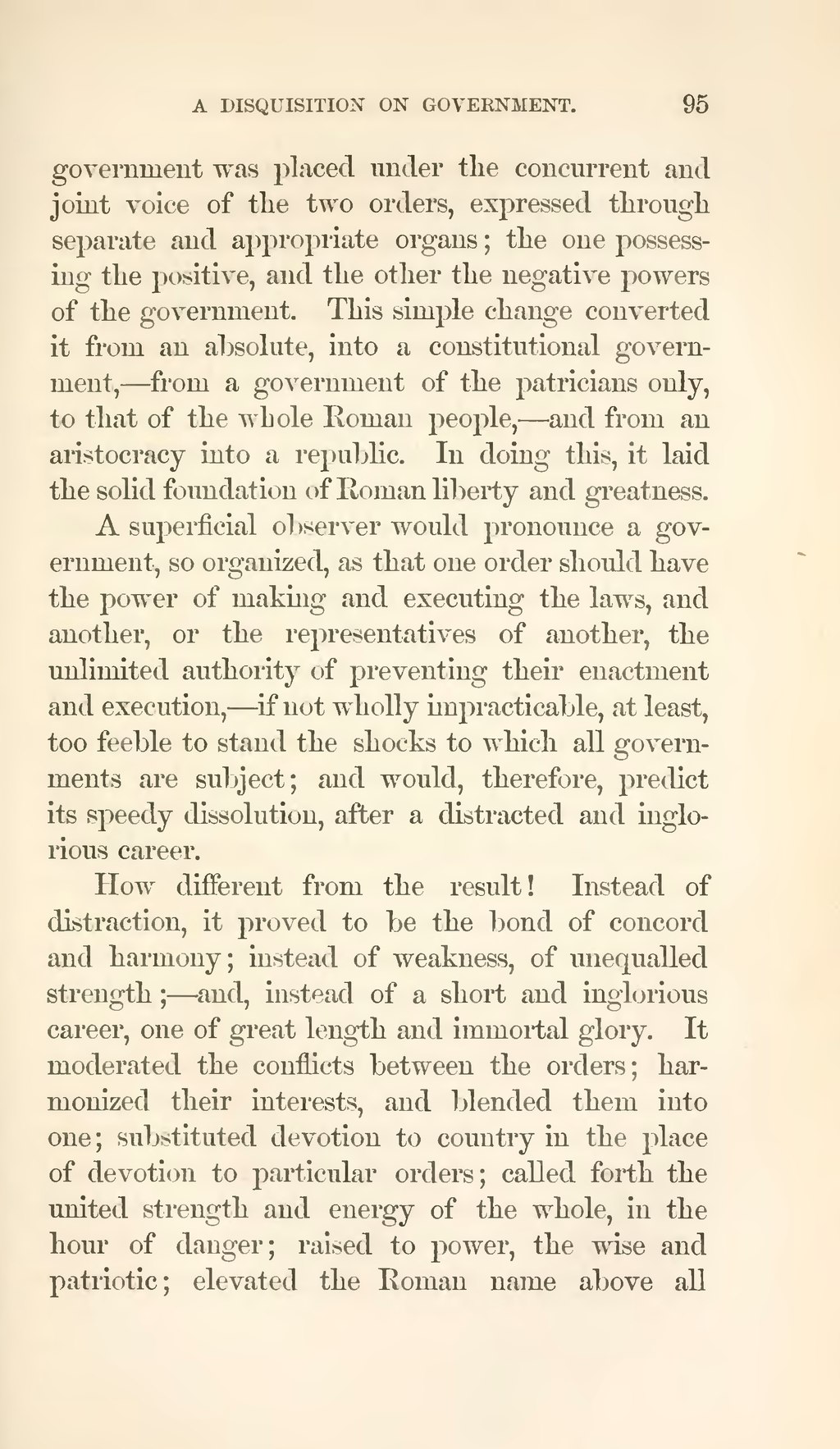government was placed under the concurrent and joint voice of the two orders, expressed through separate and appropriate organs; the one possessing the positive, and the other the negative towers of the government. This simple change converted it from an absolute, into a constitutional government — from a government of the patricians only, to that of the whole Roman people — and from an aristocracy into a republic. In doing this, it laid the solid foundation of Roman liberty and greatness.
A superficial observer would pronounce a government, so organized, as what one order should have the power of making and executing the laws, and another, or the representatives of another, the unlimited authority of preventing their enactment and execution — if not wholly impracticable, at least, too feeble to stand the shocks to which all governments are subject; and would, therefore, predict its speedy dissolution, after a distracted and inglorious career.
How different from the result! Instead of distraction, it proved to be the bond of concord and harmony; instead of weakness, of unequalled strength — and, instead of a short and inglorious career, one of great length and immortal glory. It moderated the conflicts between the orders; harmonized their interests, and blended them into one; substituted devotion to country in the place of devotion to particular orders; called forth the united strength and energy of the whole, in the hour of danger; raised to power, the wise and patriotic; elevated the Roman name above all
